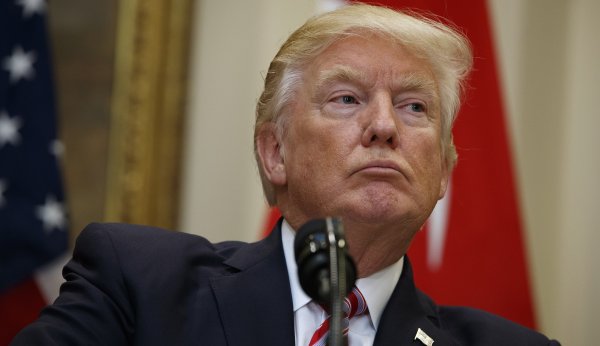
Mueller’s findings, released in a redacted report last week, detailed about a dozen episodes of potential obstruction of justice by Trump in trying to impede the inquiry but stopped short of concluding that he had committed a crime. The report said Congress could address whether the president violated the law. Mueller separately found insufficient evidence that Trump’s campaign engaged in a criminal conspiracy with Russia in the 2016 presidential race.
THE CONSTITUTION GIVES THE SOLE POWER OF IMPEACHMENT
Democrats, who control the House, remain divided over whether to proceed with the impeachment process even as new fights flare in their intensifying investigations into Trump and his administration. A fierce legal battle is taking shape over Trump’s bid to fight House subpoenas for documents and testimony from his administration that potentially could head to the Supreme Court.

The Constitution gives the sole power of impeachment and removing a president from office to the House of Representatives and the Senate, not the judiciary, as part of the founding document’s separation of powers among the three branches of the federal government.
“I DIDN’T DO ANYTHING WRONG”
Trump has said Mueller’s findings cleared him of any wrongdoing. “We waited for Mueller and WON, so now the Dems look to Congress as last hope!” he tweeted on Wednesday.
House Democrats have stepped up their oversight of the Trump administration on numerous fronts since taking control of the chamber in January, from Trump’s tax returns and White House security clearances to the investigation into Russian interference in US politics.

Trump has ramped up his fight against congressional oversight, ordering officials not to comply with subpoenas and filing a lawsuit to prevent material from being turned over to lawmakers. “There is no reason to go any further, and especially in Congress where it’s very partisan – obviously very partisan,” Trump told the Washington Post in an interview on Tuesday.













